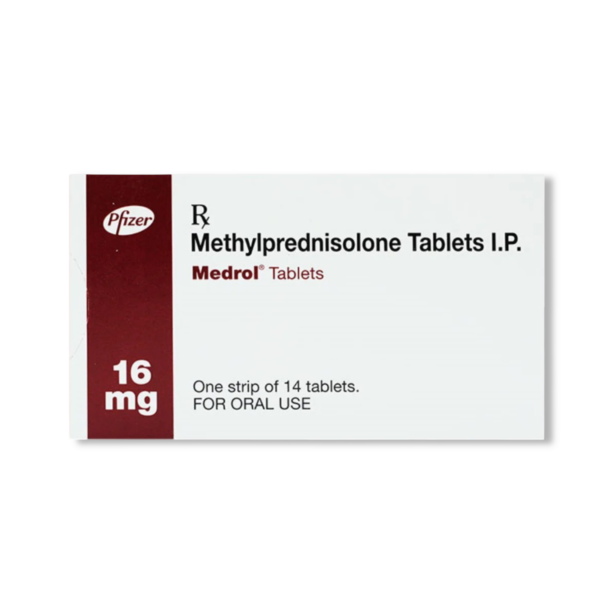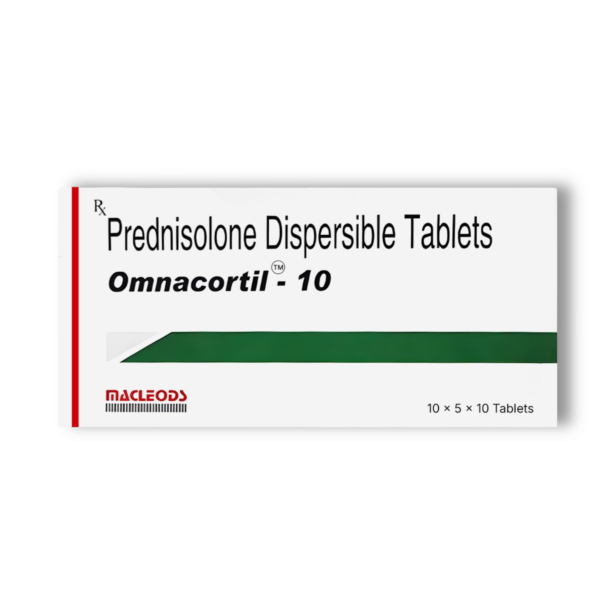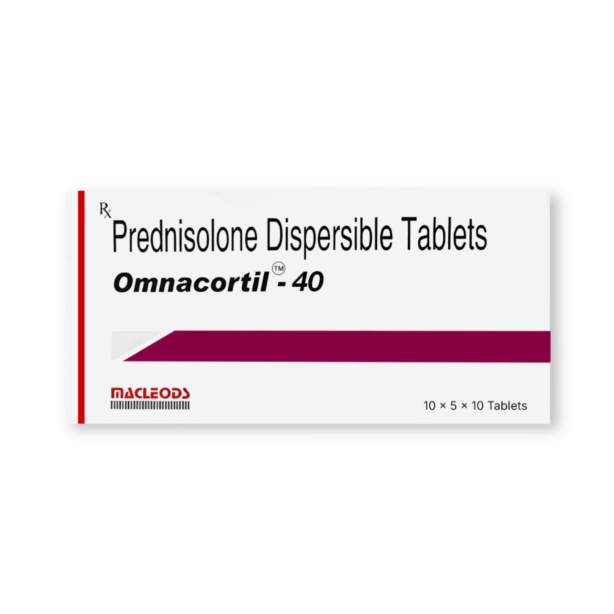Can you imagine a medicine that can treat Arthritis, relieve Asthma, manage allergic reactions, and acute worsening of Multiple Sclerosis? While it may sound unrealistic for a single medicine to manage and treat various conditions, Medrol is an effective solution for many inflammatory and immune-related diseases. So, what is Medrol?
Methylprednisolone, also known as Medrol, is an FDA-approved broad-spectrum Corticosteroid. It treats inflammatory, endocrine, respiratory, blood, bone marrow, and immune disorders. It decreases the body’s inflammation and suppresses the hyperactive immune response.
This article will discuss Medrol’s uses, workings, dosage, side effects, and precautions. We will also explore the best ways to administer this medicine safely for effective results.
What is Medrol, and what is it used for?
Medrol is the brand name for Methylprednisolone, a potent synthetic Corticosteroid medication that relieves redness, pain, and inflammation. It treats various conditions involving inflammation, immune system disorders, and certain endocrine issues.
The following are the FDA-approved uses of Medrol:
- Skin conditions: Severe skin conditions, such as Contact Dermatitis, Atopic Dermatitis, and Psoriasis.
- Endocrine diseases: Hypercalcemia and Congenital Adrenal Hyperplasia associated with Cancer, primary and secondary Adrenocortical Insufficiency.
- Neurologic conditions: Severe neurologic problems, such as Multiple Sclerosis
- Blood disorders: Blood diseases, such as Autoimmune Hemolytic Anemia and low platelet count.
- Eye conditions: Eye problems, such as allergic Conjunctivitis, Uveitis, Scleritis, Keratitis, etc
- Gastrointestinal diseases: Inflammatory Bowel Disease is one such example of gastrointestinal problems that Medrol treats.
- Respiratory conditions: Pulmonary or respiratory problems like Asthma, Chronic Beryllium Disease, Aspiration Pneumonia, etc.
- Muscle and joint diseases: Medrol can also treat Rheumatoid Arthritis and Acute Gout.
Save up to 90% on your medicine bills

Medrol 16 Mg Tablet

Omnacortil 10 Mg Tablet

Depo-Medrol 40 Mg Injection 1ml

Omnacortil 40 Mg Tablet
How does Medrol work?
Medrol mimics the effects of Cortisol, a hormone your adrenal glands produce. It enters and binds to Glucocorticoid receptors in the cell. As a result, it influences the gene expression of certain genes.
Thus, it increases anti-inflammatory proteins and decreases the production of specific molecules, such as Cytokines and Prostaglandins, which cause inflammation. This action reduces swelling, redness, and immune system activity, helping to control symptoms in conditions caused by inflammation or immune dysfunction.
Additionally, it stabilizes cellular membranes and decreases the migration of immune cells to affected tissues. Medrol helps by reducing inflammation, suppressing an overactive immune response, or replacing Cortisol when the body does not produce enough naturally.
Medrol dosage and administration
The dosage of Medrol is highly individualized based on your condition, its severity, and your response. Initial doses typically range from 4 to 48 mg per day, either as a single or divided dose.
Lower doses may suffice for milder conditions, while higher doses may be required for more severe diseases. After a satisfactory response, the dose is gradually adjusted to the lowest adequate amount to maintain symptom control and minimize side effects. You are advised not to discontinue taking Medrol abruptly to prevent the risks of withdrawal symptoms.
For the best results, take the Medrol pack in the following ways:
- If you are advised to take Medrol once, it is recommended that you adhere to your doctor’s prescription and take it in the morning. Taking it in the morning also reduces the risk of insomnia.
- Take this medication with a glass of water without breaking, chewing, or crushing the medicine.
- You need to take this medicine with food to reduce the risk of stomach distress.
What are the Medrol side effects?
While Medrol is effective, it can cause a range of side effects. Common side effects of Medrol include:
- Nausea
- Weakness
- Trouble sleeping
- Weight gain
- Increased appetite
- Trouble sleeping
- Upset stomach
- Headache
- Mild muscle pain
More severe side effects of Medrol require immediate medical attention, such as:
- Signs of allergic reactions include hives, swelling of the face or throat, and difficulty breathing.
- Severe Depression or unusual changes in behavior.
- Blurred vision, eye pain, or seeing halos around lights (which may indicate Glaucoma or Cataracts).
- Unexplained bruising or wounds that do not heal.
- Severe infections or symptoms like coughing up blood, bloody stools, or seizures.
Because Medrol suppresses the immune system, you should avoid exposure to infectious diseases and report any signs of infection. Corticosteroids like Medrol may affect growth in children, so you should monitor your child’s condition.
What should I tell my doctor before taking Medrol?
While Medrol is a safe and effective medicine for various diseases, take it if your doctor prescribes it. Furthermore, before starting Medrol, inform your doctor if you have any of the following ongoing medical conditions or take any specific medications:
Tell your doctor if you have:
Inform your doctor about the previous or existing medical conditions, such as:
- Are allergic to its active ingredient, Methylprednisolone.
- A history of virus infections, such as Chickenpox, or immune system problems.
- Diabetes, High Blood Pressure, or Osteoporosis.
- Liver, kidney, heart, or mental disease.
- Mental health issues such as Depression or unusual mood disorders.
- Eye problems like Glaucoma or Cataracts.
- Any allergies to Corticosteroids or other medications.
Tell your doctor if you take:
Also, disclose all medications, supplements, or herbal products you are taking to avoid potential interactions with Medrol, such as:
- Aspirin
- Certain antibiotics, such as Clarithromycin and Erythromycin
- Diabetes medications
- Fungal infection medications, such as Ketoconazole
- Blood clot prevention medications, such as Warfarin
- Medications to control seizures, such as Carbamazepine
- Birth control and female hormones
- Diuretics
Medrol precautions
For the safe use of the Medrol dose pack, you should follow the given precautions:
- Your doctor should monitor the Medrol dosage, especially for long-term use.
- Avoid abrupt discontinuation of Medrol, which can increase the risks of withdrawal symptoms, such as confusion, fever, peeling skin, and loss of appetite.
- Use caution in children, as Corticosteroids may affect growth.
- Inform your doctor about Medrol use before any surgery or emergency treatment.
- Avoid live vaccines during treatment due to immune suppression.
Therefore, adhering to your doctor’s prescription for effective results is essential.
Conclusion
If you wonder what is Medrol and why their doctor has prescribed it, Medrol (Methylprednisolone) is a Corticosteroid. It that treats inflammatory, respiratory, blood, and immune disorders.
It helps treat Asthma, Rheumatoid Arthritis, Psoriasis, Uveitis, Multiple Sclerosis, and other medical conditions by decreasing inflammation and suppressing an overactive immune response. Your doctor decides the appropriate dosage of Medrol based on your health condition and individual response.
However, it should be used cautiously in people with Diabetes, High Blood Pressure, liver, mental, and heart diseases. Furthermore, inform your doctor if you are allergic to Methylprednisolone, take any medication for Diabetes, fungal infection, or herbal supplements.
Medrol may also cause certain mild side effects, such as weight gain and headaches, and severe side effects, such as Depression and allergic reactions. Moreover, avoid live vaccines. Always take Medrol in the prescribed dosage after consulting your doctor and report any significant side effects to reduce the severity of the risk.

Frequently Asked Questions
How to avoid weight gain on Medrol?
To avoid weight gain on Medrol, eat small, frequent meals rich in protein, fiber, and low-calorie fruits and vegetables; limit sodium and saturated fats; avoid processed and sugary foods; stay physically active with regular exercise; and consult your doctor for personalized advice.
Is Medrol a safe Steroid for kidney diseases?
Yes, Medrol can be used safely to treat certain kidney diseases like Nephritis, effectively reducing inflammation and slowing progression. However, it carries a significant risk of severe infections and side effects. Therefore, you should always use it cautiously under close medical supervision.
Is Medrol a muscle relaxer?
No, Medrol (Methylprednisolone) is not a muscle relaxer. Instead, it is a Corticosteroid that reduces inflammation and suppresses the immune system. It can cause muscle weakness, especially long-term or high-dose use, rather than relaxing muscles. Consult your doctor to prescribe the proper treatment.
Does Medrol work immediately?
No, Medrol does not work immediately. It starts working within 1 to 2 hours after oral intake and is faster when given intravenously. However, the time to noticeable symptom relief varies by condition, with some effects taking days to weeks, especially for joint or chronic inflammation.
Can Medrol be taken long-term?
Yes, Medrol can be taken long-term under careful medical supervision. However, prolonged use of Medrol increases risks such as weight gain, high blood sugar, Osteoporosis, infections, and other severe side effects. Doctors usually monitor and adjust the dosage to minimize these risks.
When referencing outside resources, GoodrxMedicine always provides full citations. To learn more about the measures we use to maintain the quality of our content, please review our Content Information Policy.











